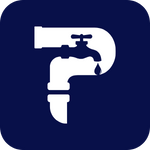Mastering Marketing Strategies: An All-Inclusive Guide for Companies To succeed in the rapidly evolving digital landscape of today, companies need to implement efficient marketing strategies. A strong online presence, social media utilization, and an understanding of your target audience are just a few of the crucial elements that can result in success. In order to help businesses expand and improve their customer connections, this article will explore a number of marketing tactics. It is essential to comprehend your target audience in order to develop successful marketing strategies.
Key Takeaways
- Understand your target audience by conducting thorough market research and creating buyer personas to tailor your marketing efforts effectively.
- Create a strong online presence by developing a user-friendly website, optimizing it for mobile devices, and utilizing engaging content to attract and retain visitors.
- Utilize social media marketing by identifying the platforms where your target audience is most active and creating a consistent and engaging presence to build brand awareness and drive traffic to your website.
- Implement SEO strategies by optimizing your website for relevant keywords, creating high-quality content, and building backlinks to improve your search engine rankings and increase organic traffic.
- Build a referral network by offering incentives for customers to refer others to your business and establishing partnerships with complementary businesses to expand your reach and customer base.
- Offer special promotions and discounts to attract new customers, retain existing ones, and encourage repeat purchases, while also differentiating your business from competitors.
- Provide excellent customer service by being responsive to inquiries and concerns, delivering on promises, and going above and beyond to exceed customer expectations and build loyalty.
- Track and analyze marketing efforts by using tools like Google Analytics to measure the performance of your campaigns, identify areas for improvement, and make data-driven decisions to optimize your marketing strategy.
This entails figuring out your target market's demographics, needs, and preferred methods of interaction with your brand. A great place to start is by conducting market research. Focus groups, customer interviews, & surveys can all yield insightful information about demographics, preferences, and pain points. After gathering this data, divide your audience into discrete groups according to traits they have in common.
Your marketing efforts can be more individually tailored thanks to this segmentation, which guarantees that each group will find resonance in your messages. For example, a fitness product company might cater to the needs of older adults seeking health solutions while simultaneously targeting young professionals seeking efficiency & convenience. You can increase engagement and boost conversions by adjusting your marketing tactics to these groups.
A strong online presence is a must for any business in today's increasingly digital world. This presence is built on your website, which should be mobile-friendly, aesthetically pleasing, & easy to use. A well-designed website increases credibility and trust with potential clients in addition to improving user experience. Along with having a useful website, think about producing insightful content that highlights your industry knowledge.
| Metrics | Value |
|---|---|
| Website Traffic | 1000 visitors/month |
| Conversion Rate | 5% |
| Customer Acquisition Cost | 50 |
| Customer Lifetime Value | 500 |
These could be podcasts, videos, infographics, or blog entries that answer frequently asked questions or difficulties by your audience. By offering helpful information, you establish your company as an authority in the field and entice users to visit your website again for additional analysis. The way companies communicate with their clients has been completely transformed by social media platforms. With billions of users globally, social media sites like Facebook, Instagram, Twitter, and LinkedIn present unmatched chances for interaction and brand exposure.
Finding out which platforms your target audience uses most frequently is the first step in using social media marketing effectively. Make a content calendar to guarantee regular posting after you have made your presence known on these channels. Distribute a range of informative materials, entertaining posts that promote engagement, and promotional content. Make use of tools like polls, stories, & live videos to encourage audience participation in real time. To increase your credibility & reach, think about working with influential people in your field.
Enhancing your website's visibility on search engines like Google is the goal of Search Engine Optimization (SEO), a crucial aspect of digital marketing. You can draw in organic traffic and improve your chances of turning visitors into paying customers by optimizing your website for pertinent keywords. To find terms and phrases that prospective clients are using in relation to your goods or services, start by performing keyword research. Naturally include these keywords in the headings, meta descriptions, and image alt tags of your website. Also, concentrate on producing top-notch content that adds value & responds to user inquiries.
Adding backlinks from reliable websites and updating your content on a regular basis will help your SEO efforts even more. For any business, one of the most effective marketing tools is a referral network. Without spending a lot of money on advertising, you can reach new audiences by encouraging happy customers to recommend friends and family.
To begin, establish a referral program that offers discounts, freebies, or first dibs on new products to customers who recommend products. To grow your network of referrals, think about collaborating with companies that complement yours. For instance, to cross-promote services, a fitness center & a nearby health food store might work together.
Using each other's clientele can help both companies gain more visibility and possibly even more revenue. Making the Most of Seasonal Opportunities. Using holidays or other special occasions to run short-term promotions can be a smart strategy to take advantage of rising consumer spending.
By using this tactic, companies can capitalize on the joy and joyous ambiance of these events, increasing sales and profits. promoting community and loyalty. Businesses can strengthen their relationships with customers by providing loyalty programs in addition to seasonal promotions.
Businesses can encourage recurring business and foster a sense of community around their brand by offering special discounts or benefits to loyal consumers. Improving the Experience of the Customer.
Positive word-of-mouth and internet reviews may follow, which could eventually result in higher sales & profits. A key component of effective marketing strategies is providing outstanding customer service. Customer loyalty & brand advocacy are more likely to occur when they feel appreciated & supported.
Your staff should be trained to put the needs of the customer first by paying attention to their issues and responding quickly. Make use of a variety of customer service channels, including social media, live chat, email, & phone, to guarantee that all clients can get help. Also, think about putting in place feedback systems that let clients discuss their experiences. This shows that you respect their opinions in addition to assisting you in identifying areas that require improvement.
Monitoring and evaluating your efforts on a regular basis is crucial to guaranteeing the success of your marketing strategies. Key performance indicators (KPIs) like website traffic, conversion rates, social media engagement, and customer feedback can be tracked with analytics systems. You can find patterns & trends by examining this data, which will help you make better marketing choices in the future. For instance, think about creating more of a particular kind of content in the future if you observe that it leads to higher social media engagement rates.
Constant assessment enables you to optimize your return on investment & make real-time strategy adjustments. In summary, becoming an expert in marketing strategies necessitates a multidimensional approach that includes knowing your target market, creating a powerful online presence, utilizing social media, applying SEO strategies, encouraging recommendations, running promotions, offering top-notch customer support, and tracking performance indicators. You can develop a unified strategy that promotes growth and strengthens client relationships by incorporating these components into your marketing plan. It's time to act! Compare your present marketing initiatives to these tactics and pinpoint areas that need work. Whether you run a small business or work for a larger corporation, using these strategies can help you succeed in the cutthroat market of today.
Give one or two of the tactics in this guide top priority right now, and see how your company grows!
If you are looking to improve your plumbing marketing strategies, you may want to consider investing in plumbing CRM solutions. A recent article on plumbersandhvacmarketers.com discusses how utilizing customer relationship management software can help streamline your marketing efforts and improve customer satisfaction. By implementing a CRM system, you can better track customer interactions, manage leads, and personalize your marketing campaigns to target specific demographics. This can ultimately lead to increased customer retention and higher conversion rates for your plumbing business.
FAQs
What is plumbing marketing?
Plumbing marketing refers to the strategies and techniques used to promote and advertise plumbing services to potential customers. This can include online marketing, social media marketing, traditional advertising, and more.
Why is effective plumbing marketing important?
Effective plumbing marketing is important for plumbing businesses to attract new customers, increase brand awareness, and stay ahead of the competition. It can also help to build trust and credibility with potential customers.
What are some effective plumbing marketing strategies?
Some effective plumbing marketing strategies include creating a professional website, utilizing search engine optimization (SEO), engaging in social media marketing, using email marketing, and implementing local advertising tactics.
How can plumbing businesses use social media for marketing?
Plumbing businesses can use social media for marketing by creating engaging content, sharing customer testimonials, posting before and after photos of projects, running promotions or contests, and engaging with their audience through comments and messages.
What role does online reviews play in plumbing marketing?
Online reviews play a significant role in plumbing marketing as they can influence potential customers' decisions. Positive reviews can help build trust and credibility, while negative reviews can deter potential customers. It's important for plumbing businesses to actively manage and respond to reviews.
How can plumbing businesses measure the success of their marketing efforts?
Plumbing businesses can measure the success of their marketing efforts by tracking key performance indicators (KPIs) such as website traffic, conversion rates, customer acquisition cost, and return on investment (ROI). This can be done using tools like Google Analytics and marketing automation platforms.






